9 Consequences of Not Wearing Sunglasses
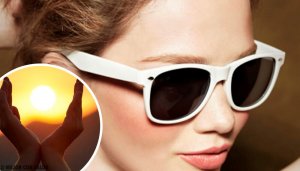

Reviewed and approved by the doctor Maricela Jiménez López
Keep reading below to know about the consequences of not wearing sunglasses.
The side-effects of not wearing sunglasses
Sunglasses aren’t just an accessory to match your outfit. In reality, they’re always in season to protect your eyes from ultraviolet rays.
It’s been shown that not wearing sunglasses leads to many side-effects as a consequence. Some of them are the following:
We recommend that you read: Natural Remedies for Dry Eyes
Direct effects of UV rays
This radiation is very harmful for our vision because it can lead to cataracts or permanent damage in the cornea, among other problems.
Headaches and eye strain
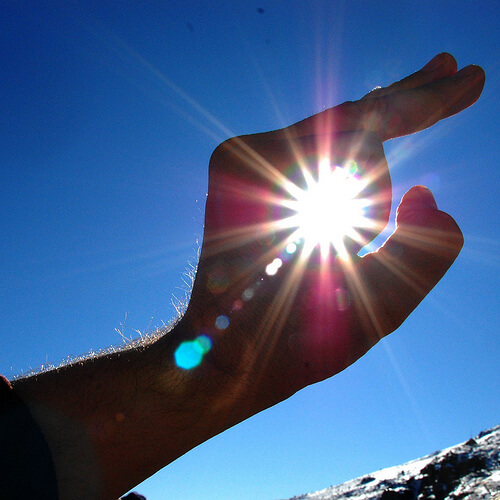
In addition, sunlight irritates your eyes and it also gives us headaches that can worsen into migraines.
Dry eye
Eyes need moisture in order to do their job, focus well and avoid problems such as blurry vision, irritation and itchiness. Not wearing sunglasses can dry out your eyes.
Light sensitivity
Light sensitivity refers to having trouble seeing in areas that are too bright or well-lit– especially in natural light settings. If a medication or treatment has this collateral effect, not wearing sunglasses worsens the sensitivity.
Photophobia
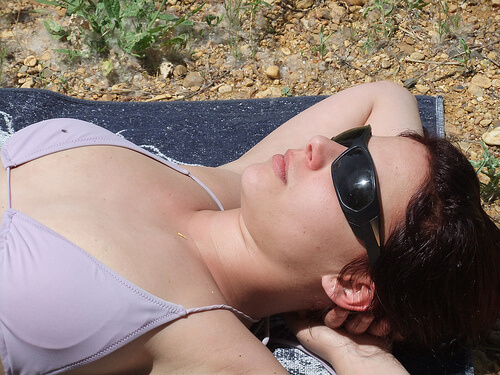
Photophobia is a sharp sensitivity to normal light conditions. It can be very uncomfortable during daylight hours.
Macular degeneration
Macular degeneration is a condition that develops in the center of the retina. It’s one of the most serious eye problems that a person can encounter.
Conjunctivitis
Conjunctivitis is the inflammation of the conjunctiva. Signs of the virus include mucus secretion in the mornings, swollen eyelids and a very uncomfortable feeling of “grittiness”.
Burns
The sun can also burn your eyelids, which is the part of the body that’s actually responsible for protecting your eyes from burning.
Why should you wear sunglasses in the winter?
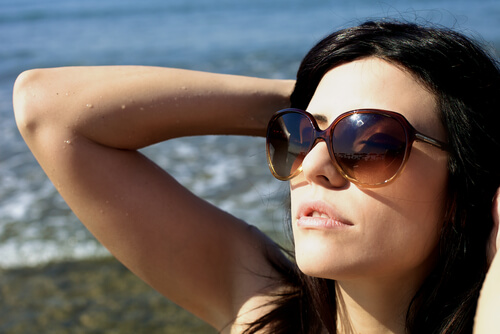
“You don’t need to wear sunglasses in the winter” is a myth. We think that just because the sun isn’t shining brightly in the sky, we don’t need protection. But that’s not true.
Even if the sun is hiding behind clouds, we still need to protect ourselves from its rays. You could even say that we need to do so even more in the winter than we do in the summer. Don’t think otherwise.
Similarly, if you live in a snowy city, or if you go on a skiing trip, you should wear special sunglasses that don’t just cover our the area of your eyes but a good area of our face as well.
Do children have to wear sunglasses?
Absolutely yes! Just as ultraviolet rays don’t weaken themselves in the winter or summer to spare our eyes, they don’t change for children either.
So, kids need to start forming the habit of never leaving the house without their sunglasses.
The good news is that the biggest sunglasses brands launch children’s collections. These collections boast fun colors, their favorite movie and TV show characters and, the best part, sizes suited kids’ needs.
Also see: How To Avoid Sunburns and Sun Damage
What about low-quality sunglasses?
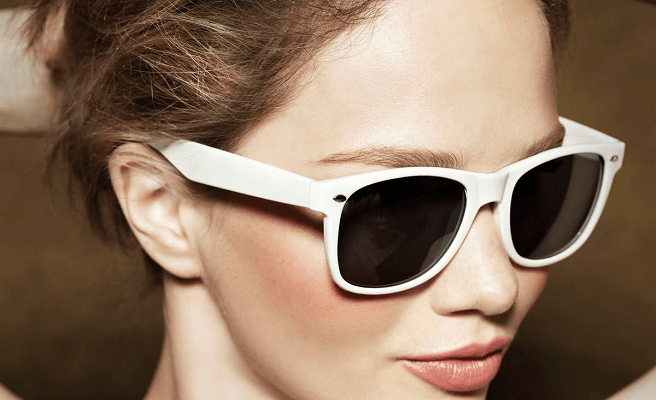
Now, we’re entering a topic that’s pretty taboo but it’s worth looking into. Buying sunglasses that haven’t been approved by medical associations or requirements at the national or international level can have negative consequences on your ocular health.
Instead of protecting your vision, the majority of these sunglasses have an opposite effect. In other words, they cause even more damage.
The majority of the patients with keratitis (inflammation of the cornea), early stages of cataracts, eye dryness and dizziness often experience problems because they’re using sunglasses that they purchased at a flea market, fair, market stall or online. Basically, they’re from any place besides an optics store.
It’s crucial to go to the right stores and get a proper assessment from specialists.
As damage is progressive, you might fail to realize that something isn’t right. Sometimes, by the time a person gets a check-up, it’s too late.
Low-quality sunglasses essentially “trick” the eye, which is an organ that’s just as fragile as it is valuable. In order to understand a little better why the sun is harmful for your eyes, you need to know that there are three types of solar radiations:
- Ultraviolet radiation (UV): These are the most harmful rays and they’re always present, even on cloudy days. They cause alternations in the cornea, premature aging in the eye and damage to the conjunctiva.
- Infrared radiation: Infrared radiation gives off the feeling of heat and can burn. The eye absorbs these rays and, as a result, the cornea can suffer from burns.
- Visible radiation: This is natural light that we receive from the sun. However, without adequate protection, it can damage our eye, especially the retina.
How are low-quality sunglasses a risk?
Sunglasses that don’t meet official standards only filter the sun’s visible radiation, not the ultraviolet rays. As a result, the pupil dilates more to allow more light to enter.
The problem is that UV rays and infrared radiation also pass through to the eye. The result is higher risks of suffering eye complications. The radiation stays stored in the lens and isn’t eliminated, meaning that its harmful effects accumulate.
All cited sources were thoroughly reviewed by our team to ensure their quality, reliability, currency, and validity. The bibliography of this article was considered reliable and of academic or scientific accuracy.
- Armengol ARM, Castellanos KM, Molina MM, León ÁMO, Díaz AG. Factores de riesgo para enfermedades oculares. Importancia de la prevención. Revista Finlay 2017; 7 (1): 153-161. Available at: http://scielo.sld.cu/scielo.php?script=sci_arttext&pid=S1727-897X2016000400010. Accessed 07/12/2020.
- Backes, C., Religi, A., Moccozet, L., Behar-Cohen, F., Vuilleumier, L., Bulliard, JL y Vernez, D. (2018). Exposición de los ojos al sol: eficacia de protección UV prevista de varias gafas de sol. Revista de ciencia de la exposición y epidemiología ambiental, 29 (6), 753–764. https://doi.org/10.1038/s41370-018-0087-0
- Balbona Brito R, Torres García D, Vázquez Negrín FS, Suárez Herrera V, Alemán Suárez I, Morán Martín Y. Síndrome de ojo seco. Revista Cubana de Oftalmología 2005; 18 (1). Available at: http://scielo.sld.cu/scielo.php?pid=S0864-21762005000100011&script=sci_arttext&tlng=pt. Accessed 07/12/2020.
- Colegio Oficial de Ópticos-Optometristas de Andalucía. “Gafas de sol no homologadas”. https://www.tuoptometrista.com/proteccion-solar/gafas-de-sol-no-homologadas/
- Duro Mota E, Campillos Páez M, Causín Serrano S. El sol y los filtros solares. Medifam 2003; 13 (3): 39-45. Available at: http://scielo.isciii.es/scielo.php?pid=S1131-57682003000300005&script=sci_arttext&tlng=pt. Accessed 07/12, 2020.
This text is provided for informational purposes only and does not replace consultation with a professional. If in doubt, consult your specialist.








